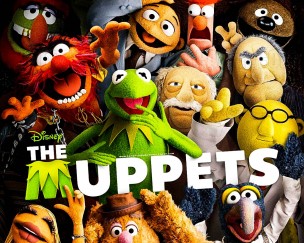
It’s hard to find a family franchise more beloved than the Muppets. After eight feature films and several shows, the collection of Jim Henson puppets has weaved in and out of popular culture for decades. The group has seen a recent surge in popularity after two films, “The Muppets” (2011) and “Muppets Most Wanted” (2014), reclaimed their distinct brand of humor and whimsy. With the help of songwriter Bret McKenzie (“Flight of the Conchords”), the recent films generated laughs and tears in equal measure. The Muppets reinvented themselves by maintaining their youthful innocence. And so the television gods have granted us a new show, one that throws all of that out the window and bases its humor in puppet sex jokes.
This concept works better than it should. “The Muppets” (the show) walks in the shadow of “30 Rock” to the point where Miss Piggy has gone from being the epitome of a diva to a tyrant who could rival Jenna Maroney. “The Muppets” stages itself as a mockumentary of Miss Piggy’s new talk show. As heavily promoted, it begins several months after Piggy and Kermit have broken up, seemingly for good.
While the breakup and the behind-the-scenes atmosphere are par for the Muppets’ course, the show’s tone is not. We are far removed from the world of “The Great Muppet Caper.” Both of the pilot’s main plot lines heavily rely on sex jokes. Within the first two minutes, as a throwaway gag, it’s implied that one of the cast mates is in Alcoholics Anonymous. The whimsy is largely gone, and the Muppets suddenly exist in a world much more real than in the past. It’s an interesting choice, and it works about half the time. This “Muppets” is not prepared to make us cry during “Rainbow Connection,” at least not yet. In many instances the humor is merely abrasive, and revels in the shock that the characters are talking about things they can’t discuss in a PG-rated affair. But when it is used for actual emotional notes, it works very well. Piggy and Kermit’s relationship has higher emotional stakes, and we feel for both of them in the aftermath of the breakup.
In the pilot, “Pig Girls Don’t Cry,” Kermit struggles to find a replacement guest star after Miss Piggy refuses to work with Elizabeth Banks (a “30 Rock” alumna, no less), and Fozzie Bear meets his girlfriend’s parents for the first time. The Fozzie plot wouldn’t work nearly as well if it weren’t for the fact that Riki Lindhome (“Another Period,” “Garfunkel and Oates”) plays his significant other. Since their inception, Muppets have always been only as good as their celebrity cameos. Banks fits perfectly in the Muppets’ world, and even Tom Bergeron integrates nicely. In a less smoothly-integrated cameo, Imagine Dragons is also in the episode.
One of the things that’s exciting about a new Muppets show is that it gets the chance to dive deep into the massive ensemble. The majority of Muppet favorites make appearances in the episode, along with several more obscure members, and one can only hope that the show gives many of them plots that the films cannot. I humbly propose a “Statler and Waldorf Go Shopping” episode.
But of course at the heart of the Muppets is the core four: Gonzo, Fozzie, Piggy, and Kermit. Gonzo has yet to play a major role, but Piggy and Kermit shine. Kermit enters new territory and is much more human than his froggy past. He’s stress eating, he’s dating again, and he seems much less sure of himself than in previous iterations. Piggy is more of a caricature until the end, when the episode teases a stronger show on the horizon.
An adultified Muppets has potential. However, this brand of humor cannot last in its current form, and the show needs to find more jokes that land if it wants to survive. But there is hope. Much like “30 Rock,” there’s something very human in the madness, and Kermit, Piggy, and friends may have found new footing in popular culture once again. These are tried and true characters. The trick is to see how they can grow when they have more room to breathe.



Leave a Reply